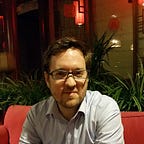Discovery Lab
Homework 4
The Hidden Side of Coffee
Introduction
I grew up in the American Pacific Northwest, so naturally I can’t live without coffee. It’s one of my favorite drinks. In Portland, OR, one thing we are proud of is our coffee culture and our coffee shops. While chain coffee stores like Starbucks still dominate, some of the highest growth areas have been in the bespoke and specialty coffee market, where it is not uncommon for a single cup of coffee sourced from a single farm in Kenya to retail for over $4 USD.
What is driving this? My grandmother drank coffee from a tin can, and my colleagues in China used to drink coffee from packets (until Starbucks arrived, quickly followed by craft coffee bars). Have our tastes always been so ‘refined’ and we were just unable to procure or afford the coffee we really wanted? What about the hidden back-end that brings us this specialized coffee? Is it not surprising how much global trade rests on your personal tastes?
This exercise is intended to help get you thinking about the structure and function of global trade at the level of a commodity that has many ‘flavors’ and other properties. This will help us as we think about the interplay between all of the actors involved in what many call a ‘supply chain’.
Instructions
Listen to this podcast about the back-end of the coffee supply chain:
What did you find interesting about the revelations in the podcast? Perhaps it was the sheer size and number of participants in the supply chain, or maybe it was how coffee itself is sold at auction around the world, or maybe it was how little tech seems to be involved and how personal relationships seemed to dominate the billion dollar industry.
Now, it’s time to go out and understand a bit about the business of coffee that some of us drink daily. You’ll need to do some one the ground research to complete this assignment.
Goal:
Your goal is to understand in detail how the coffee (or other beverage) sold at your chosen establishment arrives in the cup ready to drink. Interview or deduce from packaging, discussions and research the following:
- Where was the coffee sourced? Find as many details as possible, who was the producer? What was the name of the farm? The location?
- What about the market? What’s changing? Are there particular preferences people have or trends that you notice?
- How was it purchased? How was it paid for?
- How did it get to your cup? What’s the infrastructure that moves the raw materials to the coffee shop?
Presentation:
Sometimes writing itself is not as effective of a tool to communicate ideas. Learn about one of the most iconic graphic designers Paula Scher and her visual communication philosophy. Drawing from the inspirations you got from her works, use the skills that you have to either draw, design, or even use excel sheets to create a map that helps us answer these questions.
About Paula Scher
Paula Scher is one of the most influential graphic designers in the world. Described as the “master conjurer of the instantly familiar,” Scher straddles the line between pop culture and fine art in her work. Iconic, smart, and accessible, her images have entered into the American vernacular.
Scher has been a partner in the New York office of Pentagram, a world-famous design consultancy, since 1991. She began her career as an art director in the 1970s and early 80s, when her eclectic approach to typography became highly influential. In the mid-1990s her landmark identity for The Public Theaterfused high and low into a wholly new symbology for cultural institutions, and her recent architectural collaborations have re-imagined the urban landscape as a dynamic environment of dimensional graphic design. Her graphic identities for Citibank and Tiffany & Co. have become case studies for the contemporary regeneration of American brands.
- Watch this short documentary about her design
- Browse the world of her design consultancy: https://www.pentagram.com/
- Look closely at her MAPS project below:
Post your coffee map as a A2 sized (420 x 594 mm) PDF file in the #maps channel in Slack prior to the start of the next class.
